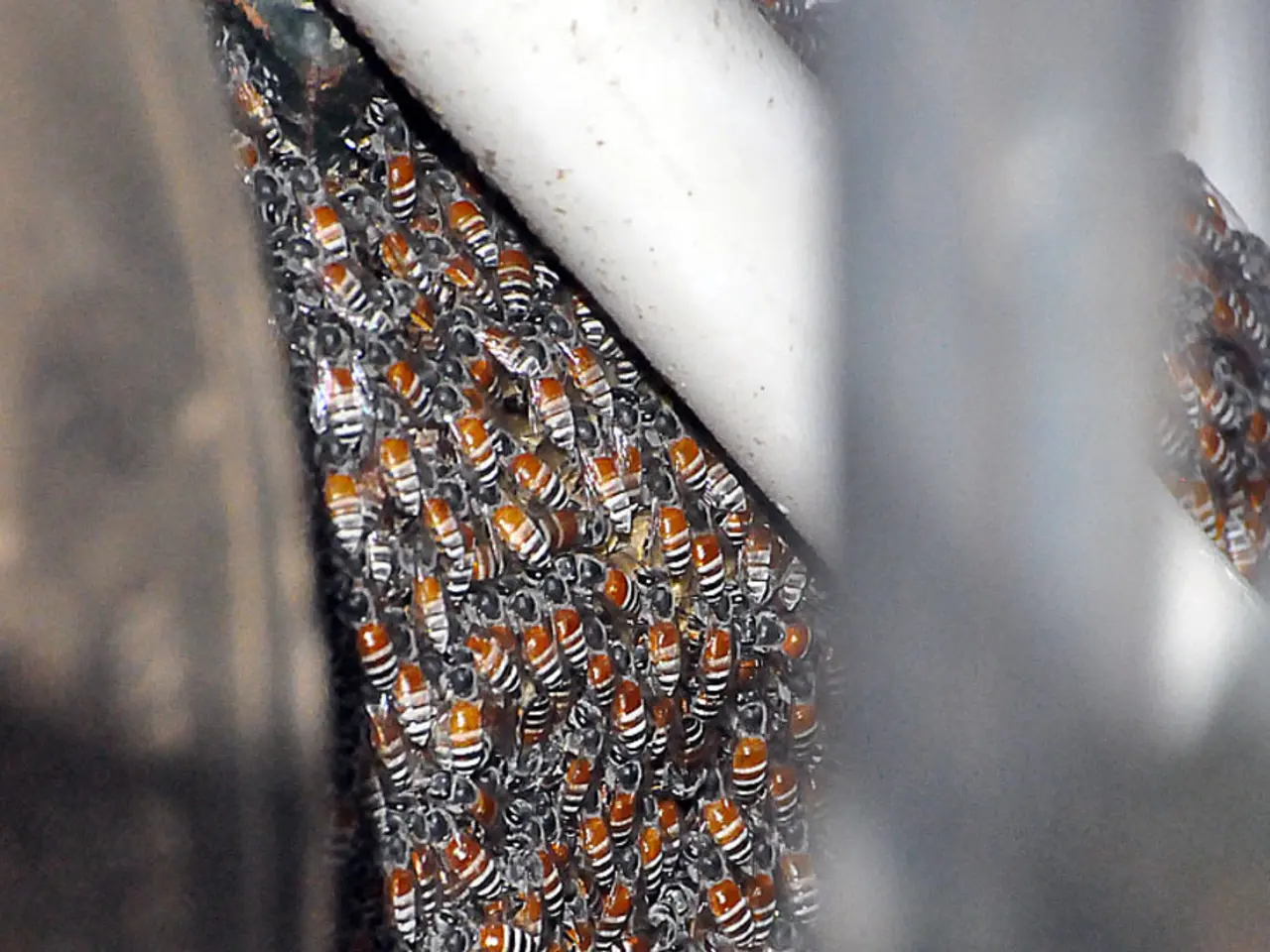France enacts legislation to maintain its ban on contentious pesticide
In France, the controversial legislation known as the Duplomb law, authored by senator Laurent Duplomb from the right-wing Republicans party, sought to reintroduce the bee-killing pesticide acetamiprid. However, this move was met with significant opposition and was eventually struck down by France's Constitutional Council on August 7, 2025.
The Constitutional Council, France's highest court, ruled that neonicotinoids, a class of insecticides including acetamiprid, pose risks to human health. This decision came after a major debate in France, with a student-initiated petition garnering over two million signatures in support of maintaining the ban on the pesticide.
Following the court's ruling, French President Emmanuel Macron signed a modified version of the law on August 12, 2025, upholding the ban and preventing the reintroduction of acetamiprid in France. Emmanuel Macron initially supported the Duplomb law but, after the court ruling, rejected further parliamentary debate and quickly enacted the law to maintain the ban, respecting the Constitutional Council's environmental protection mandate.
The ban on acetamiprid is not without controversy. Farmers, particularly sugar beet and hazelnut growers in France, oppose the ban, arguing that acetamiprid is necessary to compete with farmers in other EU countries where the pesticide remains allowed. The main farmers' union has criticized the court ruling and pushed for reauthorization.
However, the ban on acetamiprid remains in place in France, where it has been banned since 2018. Acetamiprid has been banned in France since 2018, but remains legal in the European Union until 2033.
The issue continues to generate debate about balancing agricultural needs and environmental health. French Health Minister Yannick Neuder has called for a European reassessment of the impact of acetamiprid on human health, signaling concern over possible risks and supporting stricter scrutiny at the EU level.
In summary, acetamiprid remains banned in France due to constitutional and environmental protection reasons, supported by Macron and Neuder’s cautious approach; however, French farmers advocate for its return to maintain competitive parity with EU peers where the pesticide is still permitted. The debate about balancing agricultural needs and environmental health continues.
[1] Le Monde, August 7, 2025, "La Cour constitutionnelle bloque le retour d'acetamipride en France" [2] France Info, August 7, 2025, "La Cour constitutionnelle bloque le retour d'acetamipride en France" [3] Le Figaro, August 12, 2025, "Emmanuel Macron signe la loi interdisant le retour d'acetamipride en France" [4] France 24, August 10, 2025, "La controverse autour de l'acetamipride en France: une question environnementale et agricole" [5] AFP, August 12, 2025, "Emmanuel Macron signe la loi interdisant le retour d'acetamipride en France"
In the heightened debate, French Health Minister Yannick Neuder proposed a reassessment of acetamiprid's impact on human health, advocating for stricter EU-level scrutiny in the health-and-wellness sector. Meanwhile, the farmers' union criticized the ban, citing the need for science-based evidence to support their push for reauthorization in the realm of environmental-science.




